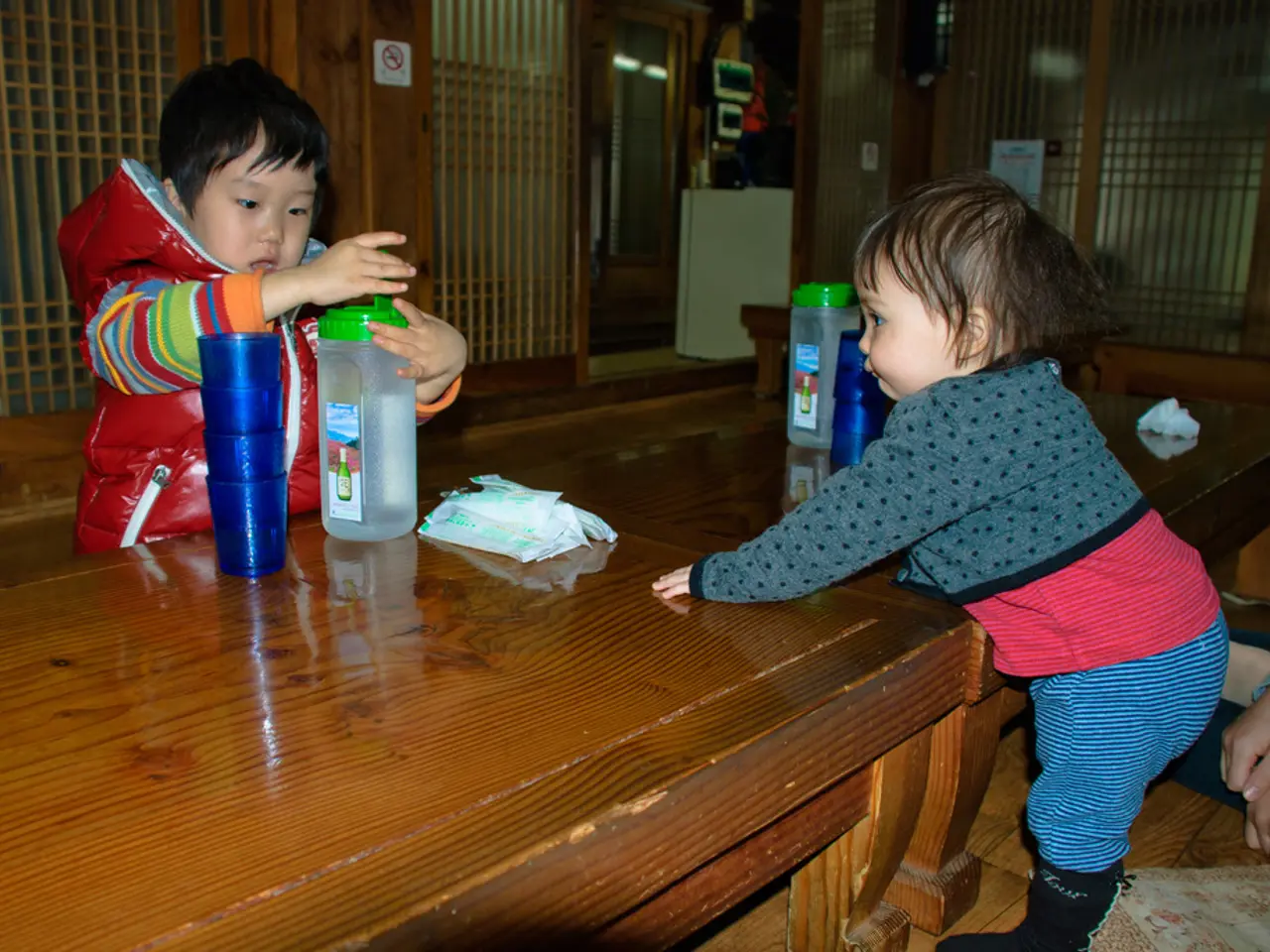Energy Drinks May Impact Children's Mental Health, Recent Studies Suggest
In recent years, there has been growing concern over the effects of energy drink consumption on the mental health of children and adolescents. A body of evidence suggests that these beverages, which often contain high levels of caffeine and sugar, can have negative mental health effects, including increased anxiety, irritability, restlessness, mood disturbances, insomnia, and behavioral problems [1][2][3][4][5].
Teens with ADHD, anxiety, or depression may be particularly vulnerable, as energy drinks can interact with prescription drugs and amplify stimulant effects [1]. This heightened risk underscores the urgent need for action.
To mitigate these risks, several measures can be taken. Parents can play a crucial role by educating children and teens about the risks of energy drinks, encouraging healthy alternatives like proper sleep and nutrition for energy, and closely monitoring or limiting access to energy drinks [3].
Regulatory bodies, such as the American Academy of Pediatrics, are also advocating for stricter regulations. They recommend against energy drink consumption in individuals under 18 and suggest lowering caffeine intake limits. There is a call for stricter regulations to limit caffeine content in these drinks and prevent marketing targeting youths [2].
Healthcare providers, including pediatricians and mental health professionals, should also be involved. They should warn families about potential dangers, especially in youth taking psychiatric medications, and encourage lifestyle changes before resorting to stimulants [1].
The surge in emergency room visits linked to caffeine overdose among teens underscores the urgency of education and regulation [2]. A combined approach of awareness, behavior modification, and policy enforcement is needed to protect young populations from the mental health impact of energy drink consumption.
A study by the University of Miami found a link between energy drink consumption and problematic behavior in adolescents, including aggression and attention problems [6]. Adequate sleep is essential for children's cognitive development and emotional well-being, and energy drink consumption can disrupt sleep patterns [7].
Adolescents who consume energy drinks regularly may be more likely to experience symptoms of anxiety, depression, and stress [8]. Caffeine can disrupt sleep patterns, leading to insomnia or poor-quality sleep in children [9]. Excessive consumption of caffeine can have adverse effects on the developing brains and bodies of children [10].
To reduce the reliance on energy drinks, encouraging the consumption of water, milk, and natural fruit juices is recommended [11]. When children do not get enough sleep, it can negatively impact their mood, memory, and overall mental health [12]. Parents should limit access to energy drinks and monitor their children's consumption of caffeinated beverages.
Several studies have suggested a potential link between energy drink consumption and the development of mental health issues in children [13]. The high caffeine content and other stimulants in energy drinks may contribute to negative outcomes such as aggression, attention problems, and mental health issues in children [14].
Educating children about the potential negative effects of excessive caffeine consumption is crucial for their mental and physical health [15]. Most energy drinks have caffeine levels that exceed those found in coffee or soda [16]. Stricter regulations regarding the marketing and sale of energy drinks to minors can help protect children from potential harm [17].
The energy drink industry should also take responsibility for providing clearer warnings about the potential risks associated with their products [18]. Regulatory bodies and the energy drink industry should implement stricter regulations and clearer labeling to protect children from potential harm [19]. Caffeine stimulates the central nervous system, which can increase heart rate, blood pressure, and anxiety levels in children [20]. In children, caffeine consumption can lead to restlessness, irritability, and difficulty concentrating [21].
In conclusion, the evidence highlights the need for a comprehensive approach to address the mental health impact of energy drink consumption in young populations. This includes education, behavior modification, and policy enforcement, with the ultimate goal of protecting children from potential harm and promoting their mental and physical well-being.
- The high caffeine and sugar content in energy drinks can negatively affect the mental health of children and adolescents, causing increased anxiety, irritability, restlessness, mood disturbances, insomnia, and behavioral problems.
- Encouraging proper sleep, nutrition, fitness, and exercise, as well as limiting access to energy drinks, can help mitigate the risks associated with energy drink consumption.
- Regulatory bodies advocate for stricter regulations, such as banning energy drink consumption in individuals under 18 and lowering caffeine intake limits to protect children from potential harm.
- Healthcare providers should educate families about the potential dangers of energy drinks, particularly in youth taking psychiatric medications, and recommend lifestyle changes before resorting to stimulants.




